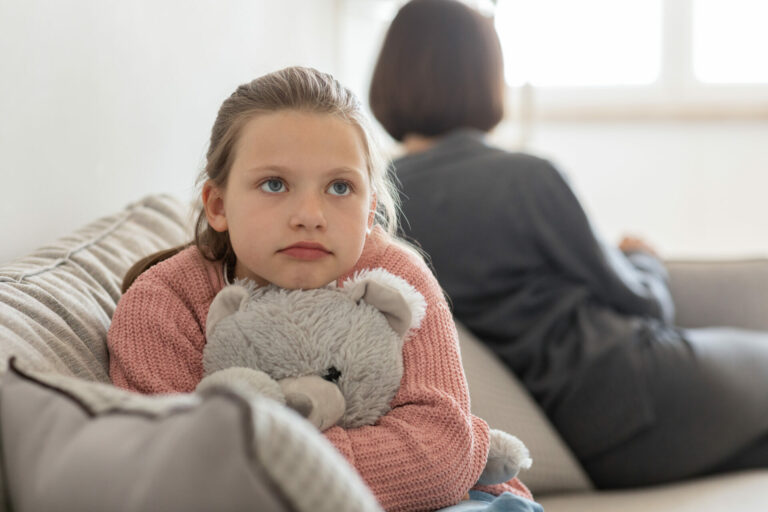Coping skills and coping strategies… Is there a difference between the two? Yes, and no. What matters is how coping skills and strategies affect the individual.
Life is full of stressors, both internal and external. Coping is defined as managing despite these stressful situations (Folman & Moskowitz, 2004). Coping skills are the thoughts and behaviors used to mitigate this stress. Skills usually fall into four categories:
- problem-focused (trying to eliminate the difficult problem)
- emotion-focused (trying to reduce the unwanted emotions associated with the problem)
- meaning focused (trying to find meaning in the problem situation)
- social (reducing stress by gaining community support)
Coping skills can be helpful, or unhelpful, when use of the coping skills has a negative consequence (Child Counseling in Davidson, 2020). Children generally need adult co-regulation in order to learn how to practice coping skills on their own (Elgin & Alvarez, n.d.). For this reason, it is helpful for caregiving adults to understand coping strategies.
Coping strategies explain why specific skills work. For example, the cognitive behavioral skill of reframing a thought relies on the strategy of lowering expectations (Cleveland Clinic, 2020; NHS, n.d.). Many other skills rely on the strategy of grounding. Grounding helps focus on the present moment, rather than on distressing thoughts or emotions (Schuldt, n.d.). Skills in this category include 5-4-3-2-1 mindfulness and counting backward from 100. Deep breathing reminds the body to relax (My Health Alberta, n.d.). Strategies are mostly category holders for specific sets of skills. Knowing the “why” behind how skills work can help individuals develop further skills within that category.
So, is it more important to have skills or strategies? Both. The important thing is the ability to regulate difficult emotions and cope with stress. Whether the person has skills or strategies, what they are and what the person calls them matter less than that they work, and that they are healthy for the individual. Need more guidance? Consider visiting with a licensed therapist who can help craft a specific set of skills for specific needs.
Lecturas recomendadas
Coping skills and coping strategies… Is there a difference between the two? Yes, and no. What matters is how coping skills and strategies affect the individual.
Life is full of stressors, both internal and external. Coping is defined as managing despite these stressful situations (Folman & Moskowitz, 2004). Coping skills are the thoughts and behaviors used to mitigate this stress. Skills usually fall into four categories:
- problem-focused (trying to eliminate the difficult problem)
- emotion-focused (trying to reduce the unwanted emotions associated with the problem)
- meaning focused (trying to find meaning in the problem situation)
- social (reducing stress by gaining community support)
Coping skills can be helpful, or unhelpful, when use of the coping skills has a negative consequence (Child Counseling in Davidson, 2020). Children generally need adult co-regulation in order to learn how to practice coping skills on their own (Elgin & Alvarez, n.d.). For this reason, it is helpful for caregiving adults to understand coping strategies.
Coping strategies explain why specific skills work. For example, the cognitive behavioral skill of reframing a thought relies on the strategy of lowering expectations (Cleveland Clinic, 2020; NHS, n.d.). Many other skills rely on the strategy of grounding. Grounding helps focus on the present moment, rather than on distressing thoughts or emotions (Schuldt, n.d.). Skills in this category include 5-4-3-2-1 mindfulness and counting backward from 100. Deep breathing reminds the body to relax (My Health Alberta, n.d.). Strategies are mostly category holders for specific sets of skills. Knowing the “why” behind how skills work can help individuals develop further skills within that category.
So, is it more important to have skills or strategies? Both. The important thing is the ability to regulate difficult emotions and cope with stress. Whether the person has skills or strategies, what they are and what the person calls them matter less than that they work, and that they are healthy for the individual. Need more guidance? Consider visiting with a licensed therapist who can help craft a specific set of skills for specific needs.
Lecturas recomendadas
References
Child Counseling in Davidson. (2020). What are coping skills. Katie Lear. https://www.katielear.com/child-therapy-blog/2020/11/10/what-are-coping-skills
Cleveland Clinic. (2020). Stress : Coping with life’s stressors. https://my.clevelandclinic.org/health/articles/6392-stress-coping-with-lifes-stressors
Elgin, J., & Alvarez, S. (n.d.) Using co-regulation to build self-regulation in kids. Helping families thrive. https://helpingfamiliesthrive.com/using-co-regulation-to-build-self-regulation-in-kids/
Folkman, S., & Moskowitz, J. T. (2004). Coping: pitfalls and promise. Annual review of psychology, 55, 745–774. https://doi.org/10.1146/annurev.psych.55.090902.141456
My Health Alberta. (n.d.). Stress management: breathing exercises for relaxation. https://myhealth.alberta.ca/Health/pages/conditions.aspx?hwid=uz2255#:~:text=This%20is%20because%20when%20you,you%20breathe%20deeply%20to%20relax.
NHS. (n.d.). Reframing unhelpful thoughts. https://www.nhs.uk/every-mind-matters/mental-wellbeing-tips/self-help-cbt-techniques/reframing-unhelpful-thoughts/
Schuldt, W. (n.d.). Grounding techniques. Therapist Aid. https://www.therapistaid.com/therapy-article/grounding-techniques-article
References
Child Counseling in Davidson. (2020). What are coping skills. Katie Lear. https://www.katielear.com/child-therapy-blog/2020/11/10/what-are-coping-skills
Cleveland Clinic. (2020). Stress : Coping with life’s stressors. https://my.clevelandclinic.org/health/ articles/6392-stress-coping-with-lifes-stressors
Elgin, J., & Alvarez, S. (n.d.) Using co-regulation to build self-regulation in kids. Helping families thrive. https://helpingfamiliesthrive.com/using-co-regulation-to-build-self-regulation-in-kids/
Folkman, S., & Moskowitz, J. T. (2004). Coping: pitfalls and promise. Annual review of psychology, 55, 745–774. https://doi.org/10.1146/annurev.psych.55. 090902.141456
My Health Alberta. (n.d.). Stress management: breathing exercises for relaxation. https://myhealth.alberta.ca/Health/pages/ conditions.aspx?hwid=uz2255#:~:text=This%20is%20be cause%20when%20you,you%20breathe %20deeply%20to%20relax.
NHS. (n.d.). Reframing unhelpful thoughts. https://www.nhs.uk/every-mind-matters/mental-wellbeing-tips/self-help-cbt-techniques/reframing-unhelpful-thoughts/
Schuldt, W. (n.d.). Grounding techniques. Therapist Aid. https://www.therapistaid.com/therapy-article/grounding-techniques-article




